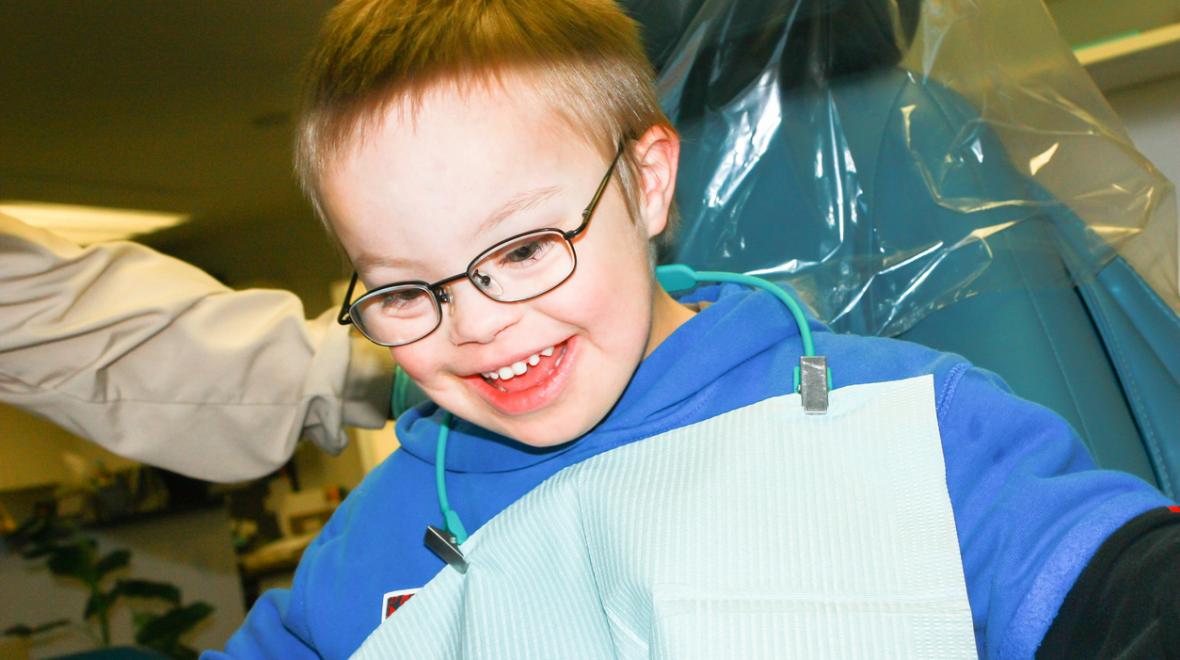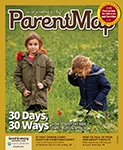
Based on a 2015–2016 Smile Survey conducted by the Washington State Department of Health and Delta Dental of Washington’s Arcora Foundation, 12 percent of our state’s third-graders have untreated tooth decay.
This number increases dramatically for children with special needs, such as autism. In fact, studies indicate 15 percent of children with autism don’t visit the dentist. Resulting deep cavities and toothaches can be a cause for behavioral issues. When a child’s teeth hurt, it’s tough to sleep, concentrate, eat, play and learn.
As parents of children with special needs know, the stress of introducing their kids to new environments with bright lights, new faces, unfamiliar smells and contraptions such as a moving dental chair can be especially challenging. Children with special needs often have difficulty communicating, and may struggle with the unfamiliarity, unpredictability and physical invasiveness associated with a dental exam. This difficulty may result in families avoiding dental visits, leaving pediatric oral health issues untreated. It doesn’t have to be that way.
I recommend that parents collaborate with their pediatric dentist to gradually introduce their children to the dental environment and work to develop their child’s comfort with and acceptance of dental care. Here are some strategies that can help make visits a success:
- Beforehand, prepare your child for their dental exam at home. Talk about what it will be like at the dentist’s office; perhaps visit the practice’s website to view photographs of providers, social media posts or videos that will show your child what a typical dental visit is like.
- Begin the first appointment with an office tour and introduction to the dental team. Discuss strategies that will help your child tolerate the exam. These might include turning out lights, selecting a private room, performing the examination in a non-dental chair or bringing a cherished toy from home. Rewards such as going out to eat a favorite meal, receiving a special prize or getting extra iPad time can also motivate the child.
- Focus on sharing information on the first visit. Use the first visit as an opportunity for you to share medical and behavioral insights about your child; doing so will allow the dental team to tailor the experience and care to your child’s strengths and sensitivities.
- When meeting with the dental team, discuss whether your child would benefit from practicing exam procedures, such as using a dental mirror, at home. Brushing teeth together as a family is another great way to teach children about healthy dental habits.
- Plan for regular return visits. Developing a consistent routine that emphasizes regular dental visits helps children become comfortable with the experience. Some children will learn to accept dental procedures quickly. Others may need gradual exposure to procedures. For example, having your child sit in a dental chair to ride up and down, allowing the dentist to brush your child’s teeth and completing a full dental exam might each take place during a separate visit.
- Make it a family affair. Bringing siblings along to the appointment can help children with special needs feel like a visit to the dentist is a regular family activity.
When it comes to developing a dental visit routine, the key is to allow children to progress at their own pace. For parents who aren’t able to come in for multiple visits and for children for whom this approach isn’t likely to work, a more traditional care approach might be the right option. This generally allows for a full exam on the first visit. Sedation and general anesthesia services are also offered for children who would benefit from this method of care.
The good news is that clinics specializing in caring for children with special needs work hard to make accessing dental care easy, and staff are typically trained to help parents coordinate other logistics, such as transportation, language translation and insurance questions.
Here are a few tips to help you prepare your child with special needs for a trip to the dentist:
- Brush their teeth at least once daily. If you are able to brush more often, excellent!
- Fluoride in toothpaste is one of the best tools we have to fight decay. Experiment with different brands and flavors to find one that your child likes. If your child is not able to tolerate the taste or texture of the paste, you can try dipping the toothbrush in a fluoride-containing mouth rinse.
- Incorporate oral care into daily life. Make it part of the home routine and consider requesting that it be added to your child’s Individualized Educational Plan (IEP) during school time.
- Minimize the number of snacks that your child has during the day. Children who eat frequently are more likely to get cavities. Drinks and snacks that contain sugar are also likely to cause cavities when consumed outside of meal times. Some recommendations for good snacks are: fresh fruits and vegetables, cheese, cold-cut meats, nuts and plain popcorn. If you use treats as rewards, try substituting sugar-free versions of the foods your child
- Sometimes the bathroom may not be the best place to brush. Try having your child lie down so you have a better view of their teeth. This can be done very effectively in their own bed or on the living room floor.
- Complete much of the required paperwork in advance of an office visit to save time once you arrive.
- Start dental visits early, at about age 1, and make them a regular part of your child’s health-care agenda.
You know your child best, so don’t be afraid to offer the dentist tips that you think may make the visit easier for your child.
Visit Delta Dental for tips on selecting a pediatric dentist and preparing your child for a dental exam, as well as information on Washington dentists who specialize in treating children with special needs.
|
Or, get our latest issue delivered directly to your home! |












